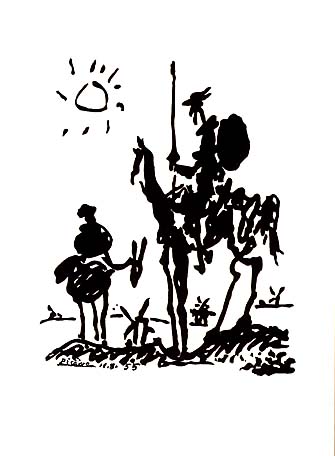Born Under A Dark Star
I was very impressed with Isaac Bashevis Singer’s novel “The Slave.” He is a natural storyteller, to say the least. Dr. Sexson always picks great novels for his classes. It took me awhile to start “The Slave,” I placed it by my bed earlier in the semester and it migrated a ways under, and when Dr. Sexson mentioned it again a couple weeks ago I had a small moment of anagoris, “oh yeah, that book is under my bed, I better read it.” And so I did, rather quickly, for me anyways.
What an amazing book though!; the wildest, nerve-racking roller coaster of a story for both Jacob and the reader! -Oh no, is he gonna get caught? -Is Sarah going to speak out of character? -Does Pilitcky know what’s going on? The rollercoaster metaphor takes me to what I’ve been thinking about in regards to the structure and shape of the narrative.
We’ve talked a lot in class about U shaped narratives. Job started high, a wealthy, happy man and then plummeted to the depths of dreariness, illness, and tragedy. But in the end God lifted Job back up, even a bit farther up than where he began, so in actuality the U would be lopsided, the right hand side a quarter or so larger. But the shape of the narrative in “The Slave” has a few more, bumps, and is therefore a much more rougher ride.
If I had to pick a letter or symbol to represent the shape of the story line in “The Slave,” I would say it’s a W. Now you may be saying, ‘no, that can’t be, Jacob begins the story in slavery!’ Which fits into the shape of the W in that the story begins in medias res. Jacob’s already been at the top, had a career, wife and children and he’s already been knocked down during the massacre. Here the story begins, in the middle of Jacob’s enslavement. He’s been knocked down, enslaved and his life goes on.
From this bottom notch in the W Jacob begins to climb. He becomes accustomed to his new, though unfair, life; the mountains are gorgeous, the animals his friends, and a lovely woman brings him food and treats once a week. And he falls in love. But in the middle of this slow up-climb there’s a rather large bump, or obtrusion. As Jacob and Wando become close, intimate, and in the midst of their final plans to run away, Jacob’s freed, at a price, from slavery. What’s a man to do? His release from slavery should be a happy thing, a joyous day. But he’s also ripped from the woman he loves. It’s fascinating, emotional tension Singer tells here, brilliant.
At first I wasn’t sure how to describe this complex bump in the W. Is it an extra, complete downswing? Or upswing? He is released from slavery… But now that I think about it, the bump or obtrusion works well: in the middle of the climb up, /, the story hits a large obtrusion, <, so that thus far our story line looks like this:
\ __
\ <
\/
I added the flat line to indicate how I feel the next section goes: neither up nor down. Jacob finds himself engrossed back in his native Judaism religion and culture, something he should be ecstatic about, but he’s in a bind. He’s in the midst of a not so optimistic epiphany, a reality check: not many Jews abide even remotely close to the entire Talmud, compared to himself. And he was torn from the woman he’d fallen in love with, though even that was a “half sin,” I’ll call it – his wife did die so he’s allowed to take another, but he didn’t know she was dead and he was following his evil lustful desires.
But then the shape continues up again, Jacob can’t take it anymore and must find Wanda – I believe it was because of a dream he had, where Wanda was carrying his baby.
Wanda’s in bad shape though. The shape of her story line is quite different than Jacob’s now that I think about it. She’s in the dregs of an immense rock bottom swing or notch: Jacob left without a word, the town thinks she’s crazy for falling in love with a Jew, she hasn’t eaten in weeks… and she’s seeing visions…her prophetess abilities are a complete other blog I may have to get into.
However this is another excellent example of how truly incredible Singer’s writing abilities are. He’s imagined two incredible complex characters, each with their own complex story line shape interacting in amazingly complex ways, each character with a different source for their passion and lust.
Back to Jacob. He and Wanda are together again, starting from scratch, but with one, not so minor, dilemma: Wanda’s not Jewish, and it’s obvious. But the Jews will never know if they change her name to Sarah and pretend she’s mute! Perfect, right? Wrong. Jacob’s mind is constantly in agony, worried they’ll be discovered, ridiculed, and killed. But all the while Jacob’s esteem from his townsman seems to grow, making the whole situation that much more nerve-racking. I would perhaps symbolize this section with the little squiggly key on the keyboard that’s never used, ~~~, and remember the story’s at a semi-high point now, Jacob and Wanda, err Sarah, are together, trying to start fresh, far from all the past suffering and hiding, which really hasn’t gone anywhere but perhaps just switched victims.
Setting all of Jacob’s mental nervousness and tension aside, this part of the narrative is a wonderful time for the two lovers. They are able to be together, study the Talmud, build their own house, and eat and live as free as possible. Sarah is actively engaged and interested in learning Jacob’s Jewish background, become a Jew herself. Jacob is thrilled she learns so much so quickly, asks good questions that mean she’s really paying attention.
However Jacob’s work life is another matter; “As is usual in the affairs of men, the relationships were complex, and all were based on deception.” (180) While he was a teacher things seemed to go better, were less stressful to an extent. But once Jacob becomes the man in charge of managing the fields, I feel it is the tipping point, downward, into his next deep slump. Although the baby is on the way, and is of course a reason to be happy, thrilled, the pregnancy also adds to Jacob and Sarah’s worries; will she be able to remain silent? She’s already revealed herself once but luckily the ignorantly pious community thought that was a miracle.
As Sarah prophesizes, the pregnancy goes horrible and she dies – an incredibly significant death because not only does Sarah die but Wando too, Jacob’s now lost three women in a sense, and two on the same day. Jacob’s left alone, again, at rock bottom. But there is a child. Yet he’s so devastated, and the community so scared that the child’s a dybbuk and cursed, Jacob hardly even gets to see his child. And then he’s excommunicated, dragged from town by dragoons. And then the story takes another turn, an upturn, and Jacob becomes the fugitive.
From here on out I think the shape of the narrative continues up, a steady climb for the better. Jacob finds himself free again, crossing fields and lush country, embracing the open air and water as best he can without being caught. When he reaches the river and gets acquainted with the ferryman Jacob’s attitude changes significantly, with the advice of the ferryman and the emissary. (The Ferryman was by far my favorite secondary character; his wise, simple advice and insights into the nature of humanity deserve a much longer discussion, which I hope to get to in another blog.) With the abundance of advice and insight Jacob receives at the river, he returns for his child, and the shape of the narrative continues up.
Once Jacob reclaims his child – and ironically names him Benjamin, ‘a Ben-oni, a child born of sorrow.’ – the story moves quickly, twenty years pass from the end of part II to the beginning of part III. (Quick side reflection: It’s kind of eerie to know where your name originates from in the bible. It makes me wonder if my parents knew the origin and meaning of my name. If I was actually a child born of sorrow? I hope not, but I guess it’s certainly possible.)
Jacob’s “Return” back to Pilitz as an old man is remarkable. His strength, passion, and love for Wanda reigns supreme over any sort of punishment or banishment that’s supposed to keep him from the city. These final pages continue the shape of the narrative up, even though Jacob’s body declines. The entire time he’s back in Pilitz Jacob seems to become more at peace with the events of his life. Even when he gets severely ill in the poorhouse he doesn’t entirely lose it, fear the end because he knows “The very act of dying is a sacrificial offering” (306) and an arrival.
I was mesmerized by the image of Jacob, an old and incredible ill man, walking from the poorhouse to the study house, “which was just across the street, taking small steps and stopping frequently to rest.” I can imagine it now, an elderly, half-bald man with a huge white beard teetering oh so slowly across the street. He has his sack slung over his shoulder, weighing him down so he’s hunchbacked and can hardly see two feet in front of him. And he’s so happy. We’ve all seen that elderly man, he looks as if each step is as much work as planting a full-grown tree, taking a break after each shovel full of dirt, each step. We feel like we ought to help, ought to carry him or something – as Deeds did in the Adam Sandler movie. But he doesn’t need help, as Jacob says, “Thanks you. There’s no need. Don’t be offended.” These men know exactly what they need to do, they know and accept each day, what’s coming; we ‘young bucks’ are the ones who need help and are utterly lost.
Now lets return to our narrative structure, shape: the W. At the end and conclusion of the novel it should look something like this:
{\ ~~ *
\ _/ \ /
\} < \ /
\/ \/
Well, that looks a bit more complicated than I was intending but I think I can make it work. The first two down slants inside the fancy parenthesis indicate the missing start of the story, before the in medias res beginning where Jacob’s nestled in the bottom of the first \/. Things get better as he falls in love, until the bump or obtrusion, <, when he’s released from slavery. Then he returns for Wanda, another up-slant, which leads to their escape and transformation into a fresh Jewish life. But this life is uneasy though still a high point, symbolized by the squiggles, ~~, placed at the peak in the middle of the W. Then another down turn with Jacobs new job, the pregnancy, birth, and death that leads him to his second rock bottom \/. And then it’s all uphill; another escape, fugitive run, meeting the ferryman and the emissary, return to reclaim his child, raising the child (part of the twenty year lacuna), and finally the return to Pilitz, and ultimately the return to Wanda *.
I guess I probably should have wrote my paper on this since I rambled on for so long. I actually didn’t post this for a couple days in case I did decide to take the easy route and use this for my paper. But, alas, I can, and should, always write more.
Thanks for reading. P.S: My cheesy W diagrams looked way better in a word document, for the record ;)



